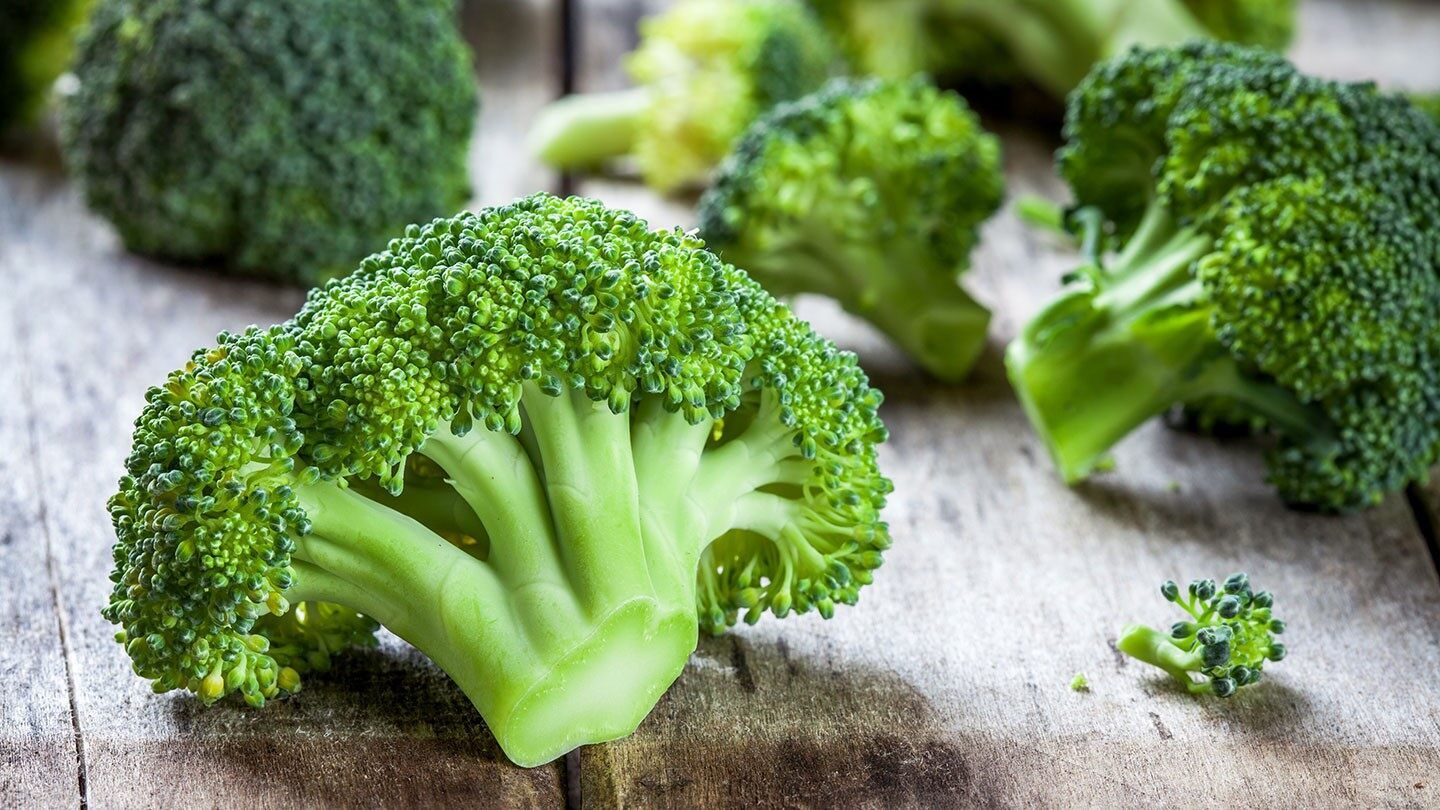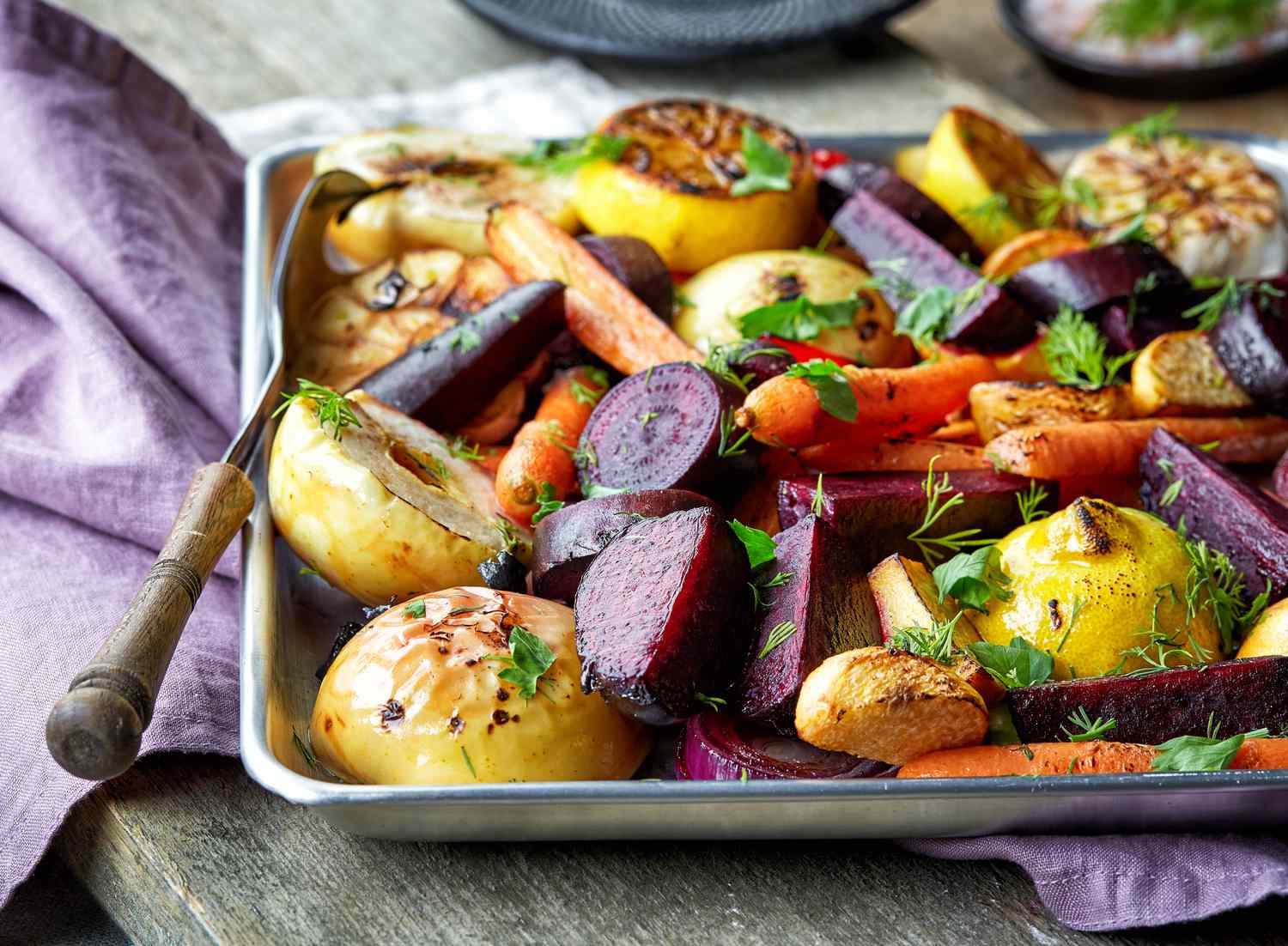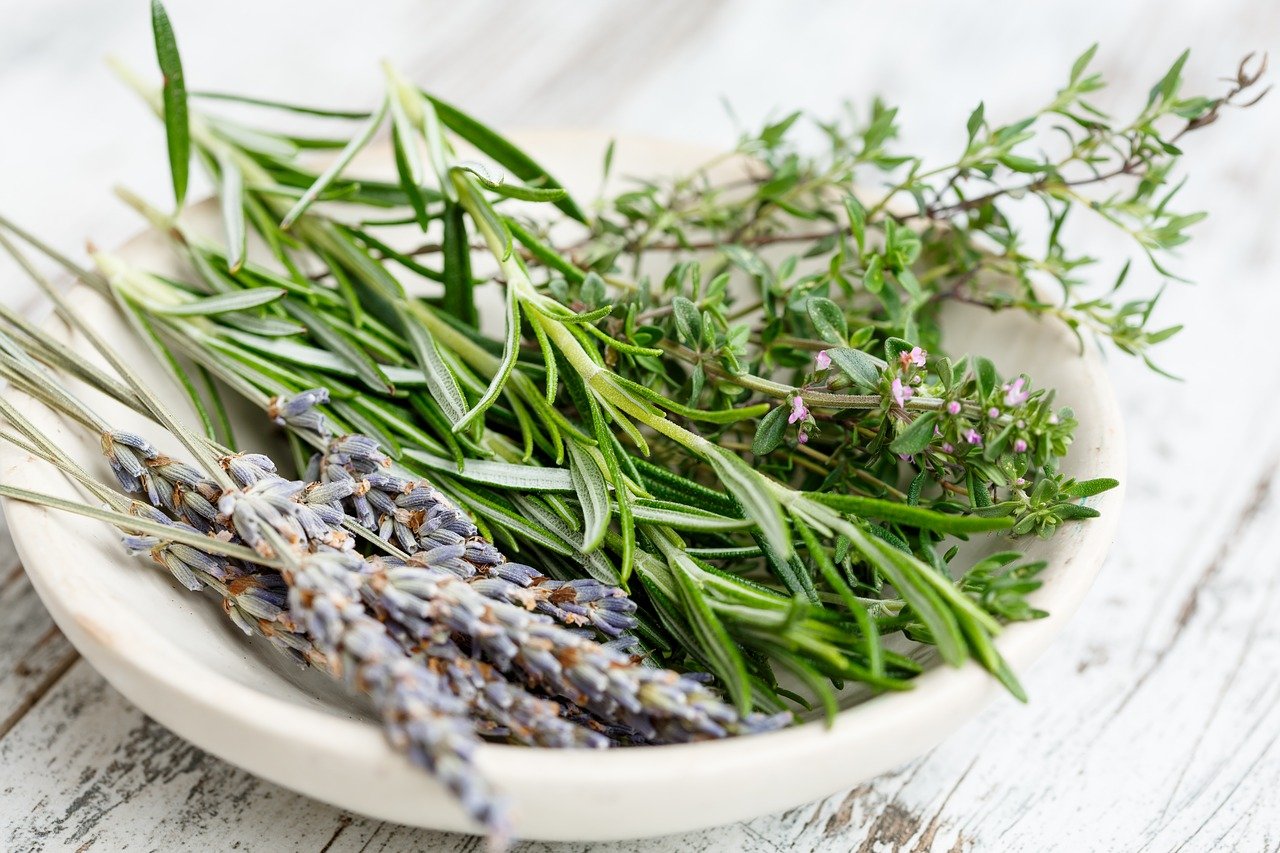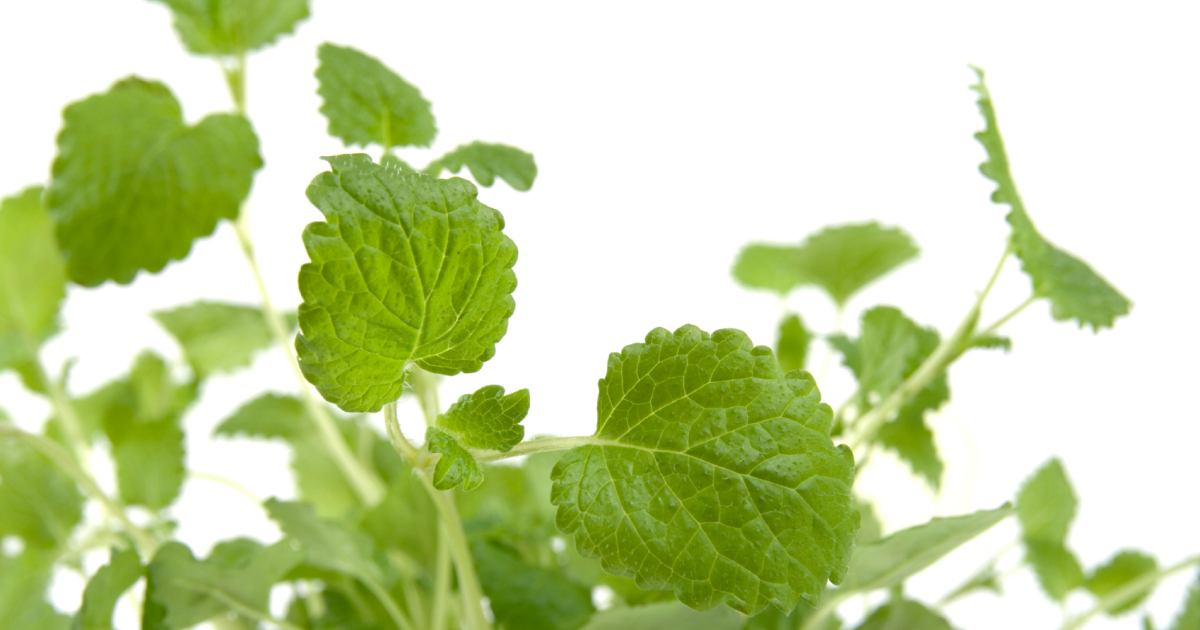Home>Gardening News and Trends>Latest News>What Vegetables Are Good For Eyesight
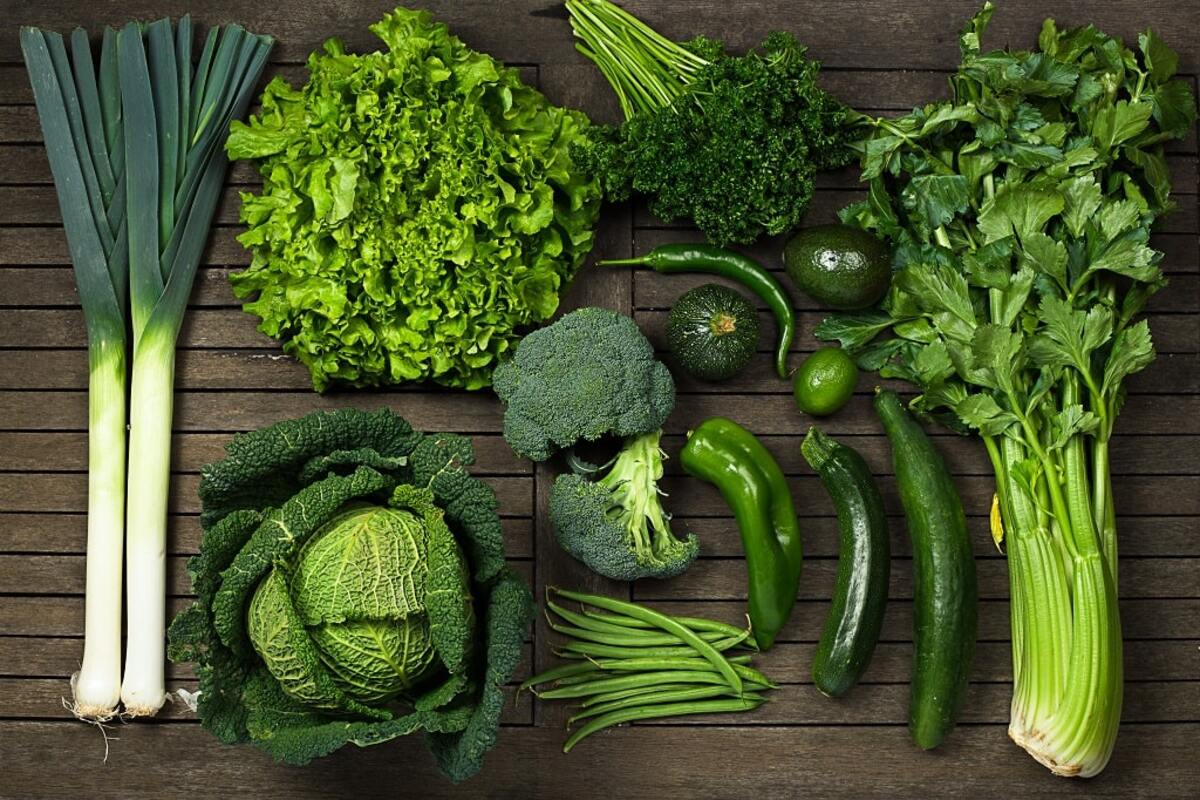

Latest News
What Vegetables Are Good For Eyesight
Modified: January 22, 2024
Discover the latest news on what vegetables are good for eyesight. Learn how incorporating these nutrient-rich foods into your diet can benefit your vision and overall eye health.
(Many of the links in this article redirect to a specific reviewed product. Your purchase of these products through affiliate links helps to generate commission for Chicagolandgardening.com, at no extra cost. Learn more)
Table of Contents
Introduction
When it comes to maintaining good eyesight, incorporating a healthy diet rich in vegetables can play a crucial role. From protecting the eyes against harmful free radicals to providing essential vitamins and nutrients, certain vegetables have been shown to promote optimal eye health. In this article, we will explore a variety of vegetables that are known for their beneficial impact on eyesight.
Our eyes are exposed to numerous external factors that can impact their health and functioning. The daily use of digital screens, exposure to harmful UV rays, and oxidative stress due to aging are just a few examples. Fortunately, adopting a diet that includes vegetables packed with essential nutrients can help enhance vision and protect against eye diseases.
While incorporating a variety of vegetables into your diet is important for overall health, there are specific vegetables that are known to have a positive impact on eyesight. These vegetables are rich in antioxidants, vitamins, and minerals that support eye health. Let’s explore some of the best vegetables for maintaining good eyesight.
Spinach
Spinach, often hailed as a superfood, is not only beneficial for overall health but is particularly advantageous for promoting good eyesight. This leafy green vegetable is rich in antioxidants, including lutein and zeaxanthin, which have been associated with a reduced risk of developing age-related macular degeneration (AMD) and cataracts.
Lutein and zeaxanthin are carotenoids that are highly concentrated in the macula of the eye, where they act as natural sunscreens and protect against harmful blue light. They help filter out damaging light and reduce the risk of oxidative damage to the retinal cells, helping to prevent the onset and progression of eye diseases.
Additionally, spinach is a good source of vitamin C, vitamin E, and beta-carotene, all of which contribute to healthy eyes. Vitamin C is known for its antioxidant properties, reducing the risk of cataracts and slowing the progression of AMD. Vitamin E helps protect cells from oxidative stress and supports overall eye health. Beta-carotene, a precursor to vitamin A, is essential for good vision, as it helps maintain a clear cornea.
There are various ways to incorporate spinach into your diet. You can enjoy it raw in salads or add it to cooked dishes such as stir-fries, soups, and omelets. You can also include spinach in smoothies or blend it into sauces and dips for a nutritious boost.
To maximize the nutritional benefits of spinach, it’s best to consume it raw or lightly cooked, as prolonged cooking can diminish its nutrient content. However, even cooked spinach retains its antioxidant capabilities, so it can still be a valuable addition to your eye-healthy diet.
Carrots
Carrots are often associated with promoting good eyesight, and for good reason. These vibrant orange root vegetables are packed with beta-carotene, a precursor to vitamin A, which is essential for maintaining healthy vision.
When we consume carrots, our bodies convert the beta-carotene into vitamin A, which helps protect the surface of the eye (cornea) and plays a vital role in the function of the retina. Adequate vitamin A levels can prevent night blindness and promote good color vision.
In addition to beta-carotene, carrots contain other antioxidants such as lutein and zeaxanthin, which protect the eyes from harmful free radicals and reduce the risk of age-related eye diseases.
Incorporating carrots into your diet is easy as they are versatile and can be enjoyed in various ways. You can munch on fresh carrots as a healthy snack, dip them in hummus or other sauces, or include them in salads for a refreshing crunch.
Steaming or roasting carrots can help enhance their natural sweetness and make for a delicious side dish. Incorporating shredded carrots into baked goods, such as muffins or cakes, is another creative way to enjoy their nutritional benefits.
Remember, while carrots are beneficial for eye health, they should be consumed as part of a well-balanced diet that includes a variety of other vegetables as well. Eating a diverse range of colorful fruits and vegetables ensures a broader spectrum of nutrients that contribute to overall eye health.
Kale
Kale, often referred to as a nutritional powerhouse, is an excellent vegetable for maintaining good eyesight. This leafy green is packed with antioxidants, vitamins, and minerals that contribute to optimal eye health.
One of the standout nutrients in kale is lutein. Lutein is a carotenoid that filters out harmful blue light and protects the eyes from oxidative damage caused by free radicals. It is well-known for its role in reducing the risk of age-related macular degeneration (AMD) and cataracts.
Kale is also a rich source of zeaxanthin, another carotenoid that works in synergy with lutein to promote eye health. Zeaxanthin is considered to be particularly beneficial for protecting the retina and improving visual performance.
Additionally, kale contains high levels of vitamin C, which is essential for the overall health of the eyes. Vitamin C helps strengthen blood vessels in the eyes, reducing the risk of developing conditions such as cataracts and glaucoma. It also aids in the absorption of iron, which is necessary for delivering oxygen to the eyes.
Incorporating kale into your diet is easy and versatile. You can enjoy it raw in salads or smoothies, or lightly steam or sauté it as a side dish. Kale chips, made by baking seasoned kale leaves, are a popular and nutritious snack option.
It’s worth noting that while kale is highly nutritious, it contains a high amount of oxalates, which may interfere with the absorption of calcium in some individuals. If you have a history of kidney stones or calcium-related health conditions, it’s best to consult with a healthcare professional before consuming large quantities of kale.
Overall, including kale in your diet can help protect your eyes from oxidative stress, promote better vision, and reduce the risk of age-related eye diseases. Combine it with other eye-healthy vegetables for a well-rounded approach to maintaining optimal eye health.
Bell Peppers
Bell peppers, with their bright and vibrant colors, not only add flavor and crunch to dishes but also provide numerous benefits for maintaining good eyesight. These versatile vegetables are rich in vitamins, antioxidants, and minerals that contribute to optimal eye health.
One of the primary nutrients found in bell peppers is vitamin C. Vitamin C plays a crucial role in the health of blood vessels in the eyes, reducing the risk of developing cataracts and promoting proper blood circulation. It also helps the body absorb iron, which aids in delivering oxygen to the eyes.
Bell peppers also contain high levels of vitamin A, which is essential for maintaining healthy eyesight. Vitamin A supports the functioning of the retina and ensures proper vision in low light conditions. It also helps protect the cornea, the transparent front part of the eye.
Another significant benefit of bell peppers is their high content of antioxidant compounds, including lutein, zeaxanthin, and beta-carotene. These antioxidants help neutralize harmful free radicals, reducing the risk of oxidative damage to the eyes and preventing age-related macular degeneration (AMD) and cataracts.
To reap the maximum benefits, it’s advisable to consume bell peppers in their raw or lightly cooked form, as heat can degrade some of their nutrient content. Enjoy them sliced in salads, stuffed with flavorful fillings, or added to stir-fries and fajitas for a burst of color and nutrition.
It’s worth noting that bell peppers come in different colors, including red, green, yellow, and orange. While all varieties are packed with essential nutrients, red bell peppers are known to have the highest levels of vitamin C and beta-carotene. Therefore, incorporating different colored peppers into your diet can provide a wider range of beneficial nutrients.
Incorporating bell peppers into your meals not only enhances the visual appeal of your dishes but also provides a delicious way to support your eye health. So, next time you’re considering a veggie-packed meal, don’t forget to include these vibrant and nutrient-rich bell peppers.
Broccoli
Broccoli is a nutritious vegetable that offers numerous health benefits, including support for good eyesight. Packed with vitamins, minerals, and antioxidants, broccoli can help protect the eyes from damage caused by oxidative stress and reduce the risk of eye diseases.
One of the key nutrients in broccoli is vitamin C. This powerful antioxidant helps maintain the health of blood vessels in the eyes, reduces the risk of cataracts, and plays a role in preventing age-related macular degeneration (AMD).
Broccoli is also rich in vitamin A, which is essential for maintaining healthy vision. Vitamin A supports the functioning of the retina and ensures proper optical nerve signaling. Including broccoli in your diet can contribute to optimal eye health and enhance night vision.
In addition to vitamins, broccoli contains lutein and zeaxanthin, carotenoids that act as protective antioxidants. These compounds help filter out harmful blue light and reduce the risk of developing AMD and cataracts.
Furthermore, broccoli is a good source of folate, which supports the overall health of the eyes and helps prevent age-related vision loss. It also contains beta-carotene, an important precursor to vitamin A that helps maintain clear corneas.
There are various ways to enjoy broccoli in your meals. You can steam or lightly sauté it as a side dish or add it to stir-fries, soups, salads, and pasta dishes. Incorporating broccoli into your diet on a regular basis can promote better eye health and contribute to overall well-being.
Remember to cook broccoli lightly to preserve its nutritional value. Overcooking can diminish its nutrient content, including the essential vitamins that are crucial for optimal eye health.
By incorporating broccoli into your meals, you can nourish your eyes with essential nutrients and protect them from oxidative damage, reducing the risk of eye diseases and maintaining good eyesight.
Sweet Potatoes
Sweet potatoes are not only a delicious and versatile vegetable but also a great choice for maintaining good eyesight. These root vegetables are packed with essential nutrients that promote optimal eye health and provide a range of benefits.
One of the key nutrients found in sweet potatoes is beta-carotene. This antioxidant compound gives sweet potatoes their vibrant orange color and is converted into vitamin A in the body. Vitamin A is vital for maintaining clear vision, preventing night blindness, and supporting overall eye health.
Consuming sweet potatoes regularly can contribute to reducing the risk of developing age-related macular degeneration (AMD), a leading cause of vision loss in older adults. The high vitamin A content in sweet potatoes also helps protect the cornea, the transparent front part of the eye.
In addition to beta-carotene, sweet potatoes are a good source of vitamins C and E, both of which have antioxidant properties. Vitamin C helps strengthen blood vessels in the eyes and reduces the risk of cataracts and other eye conditions. Vitamin E protects against oxidative damage and supports eye health overall.
Furthermore, sweet potatoes contain minerals such as zinc and copper, which are crucial for maintaining the health of the retina and preventing potential vision problems.
Enjoy sweet potatoes in various forms, such as baked, roasted, or mashed. They can be a nutritious side dish, a main course ingredient, or even part of sweet treats like pies and muffins.
When preparing sweet potatoes, try to avoid cooking methods that involve excessive oil or added sugars, as they can reduce the nutritional value. Opt for healthier cooking methods like baking or steaming to retain their nutrients while enhancing their natural flavors.
By incorporating sweet potatoes into your diet, you can nourish your eyes with the essential vitamins and minerals necessary for maintaining good eyesight. So, indulge in the sweetness of these nutritious root vegetables and support your eye health in the process.
Brussels Sprouts
Brussels sprouts may be small, but they offer big benefits when it comes to maintaining good eyesight. These little green vegetables are packed with essential nutrients that support eye health and provide a range of overall health benefits.
One of the standout nutrients in Brussels sprouts is vitamin C, a powerful antioxidant that plays a vital role in the health of blood vessels in the eyes. Vitamin C helps reduce the risk of cataracts and promotes healthier blood flow to the eyes, supporting optimal eye function and health.
In addition to vitamin C, Brussels sprouts are a good source of vitamin K, which aids in blood clotting and supports overall eye health. Vitamin K is essential for proper absorption of calcium, contributing to the maintenance of healthy bones and preventing damage to blood vessels in the eyes.
Brussels sprouts also contain lutein and zeaxanthin, two carotenoids that are highly beneficial for eye health. These antioxidants help filter out harmful blue light and reduce the risk of developing age-related macular degeneration (AMD) and cataracts.
Fiber is another important component of Brussels sprouts. A diet rich in fiber can help regulate blood sugar levels, which is crucial for preventing diabetic retinopathy, a condition that can cause vision loss.
There are various ways to incorporate Brussels sprouts into your diet. You can roast them to bring out their natural sweetness, steam them for a tender texture, or sauté them with other vegetables for a flavorful stir-fry. Adding Brussels sprouts to salads or including them in casseroles and vegetable medleys are other delicious options.
When cooking Brussels sprouts, be mindful not to overcook them, as this can result in a bitter taste and a loss of some valuable nutrients. Aim for a slightly crisp texture to preserve their nutritional benefits.
By including Brussels sprouts in your meals, you can provide your eyes with essential vitamins and antioxidants that contribute to optimal eye health. So, don’t let their small size fool you – Brussels sprouts are a powerhouse vegetable when it comes to promoting good eyesight.
Tomatoes
Tomatoes, with their vibrant colors and juicy flavor, are not only a versatile ingredient in many dishes but also contribute to maintaining good eyesight. These delicious fruits are rich in vitamins, antioxidants, and minerals that provide numerous health benefits, including supporting optimal eye health.
One of the standout nutrients in tomatoes is lycopene, a powerful antioxidant that gives them their red color. Lycopene has been linked to a reduced risk of developing age-related macular degeneration (AMD) and cataracts, two common eye conditions that can lead to vision loss.
In addition to lycopene, tomatoes are an excellent source of vitamin C, which is crucial for maintaining the health of blood vessels in the eyes and reducing the risk of cataracts. Vitamin C also acts as an antioxidant and helps protect the eyes from oxidative stress caused by free radicals.
Furthermore, tomatoes contain beta-carotene, a precursor to vitamin A, which is essential for good vision and eye health. Vitamin A supports the functioning of the retina, protects the cornea, and promotes overall eye health.
Tomatoes also provide other beneficial nutrients such as vitamin E and potassium. Vitamin E acts as an antioxidant and helps protect the cells of the eyes from oxidative damage. Potassium plays a role in maintaining a healthy balance of fluids in the eyes and supports normal intraocular pressure.
Incorporating tomatoes into your diet is easy and delicious. You can enjoy them fresh in salads, salsas, or sandwiches. They can be cooked down into sauces, soups, or stews, which can help improve the absorption of lycopene. Incorporating a variety of tomato-based dishes into your meals allows you to reap the maximum benefits of their eye-healthy nutrients.
It’s worth noting that cooking tomatoes with a small amount of healthy fats, such as olive oil, can further enhance the absorption of lycopene, as it is a fat-soluble nutrient. So, consider combining tomatoes with a source of healthy fats to maximize their nutritional benefits.
By including tomatoes in your diet, you can nourish your eyes with essential vitamins, minerals, and antioxidants, promoting optimal eye health and supporting clear vision.
Cabbage
Cabbage, a cruciferous vegetable, is not only a versatile ingredient in countless dishes but also offers significant benefits for maintaining good eyesight. This leafy vegetable is packed with essential nutrients that support eye health and contributes to overall well-being.
One of the key nutrients found in cabbage is vitamin C, which plays a crucial role in maintaining the health of blood vessels in the eyes. Vitamin C is also a powerful antioxidant that helps protect the eyes against oxidative stress caused by free radicals. By reducing oxidative damage, cabbage can help prevent the development of eye conditions such as cataracts and age-related macular degeneration (AMD).
Cabbage is also rich in vitamin K, which supports blood clotting and contributes to overall eye health. Adequate vitamin K levels promote healthy blood circulation in the eyes, reducing the risk of ocular issues caused by poor circulation.
Furthermore, cabbage contains lutein and zeaxanthin, two carotenoids that are beneficial for eye health. These compounds act as antioxidants and help protect the eyes from harmful blue light, reducing the risk of developing cataracts and AMD.
The sulfur-containing compounds found in cabbage, such as sulforaphane, have also been shown to have anti-inflammatory and antioxidant properties, which can help protect the eyes from damage caused by inflammation and oxidative stress.
Incorporating cabbage into your diet is easy and can be done in various ways. You can enjoy it raw in salads, add it to stir-fries or soups, or even ferment it to make sauerkraut or kimchi. Cooking cabbage lightly helps retain more of its nutrient content.
Cabbage is a versatile vegetable that can be enjoyed raw or cooked and offers various health benefits, including supporting eye health. By including cabbage in your diet, you can provide your eyes with essential nutrients that contribute to optimal eye function and help protect against eye diseases.
Conclusion
Maintaining good eyesight is crucial for our overall well-being, and incorporating a diet rich in vegetables can play a significant role in supporting optimal eye health. From leafy greens like spinach and kale to colorful options like carrots and bell peppers, each vegetable offers unique benefits that contribute to maintaining clear vision and preventing eye diseases.
Spinach, with its abundance of antioxidants and vitamins, helps protect the eyes from free radical damage and reduces the risk of age-related macular degeneration (AMD). Carrots, known for their high vitamin A content, support night vision and keep the cornea healthy. Kale, packed with lutein and zeaxanthin, filters harmful blue light and supports visual performance.
Bell peppers provide a rich source of vitamin C, which enhances blood vessel health in the eyes, while broccoli, with its high levels of vitamin C and lutein, protects against oxidative stress and promotes good eyesight. Sweet potatoes, with their beta-carotene content, contribute to clear vision and prevent age-related eye conditions.
Brussels sprouts, rich in vitamin C and K, help maintain healthy blood vessels and support overall eye health. Tomatoes, with their lycopene and vitamin C, reduce the risk of age-related macular degeneration and cataracts. Lastly, cabbage provides a range of nutrients such as vitamin C, K, and lutein, which protect against oxidative damage and support eye function.
Incorporating a variety of these vegetables into our diet is essential for obtaining a wide range of nutrients that benefit eye health. Whether enjoyed raw, cooked, or in a variety of dishes, these vegetables provide essential vitamins, minerals, antioxidants, and protective compounds that support optimal eye health.
Remember, while incorporating these vegetables into your diet is important, it is also crucial to maintain a well-balanced and nutritious overall eating plan. Alongside vegetables, ensure you include other food groups that provide essential nutrients for your overall health.
So, take advantage of the diverse range of vegetables that help maintain good eyesight and incorporate them into your meals. Your eyes will thank you for the nourishment and protection as you enjoy clear vision and optimal eye health throughout your life.
